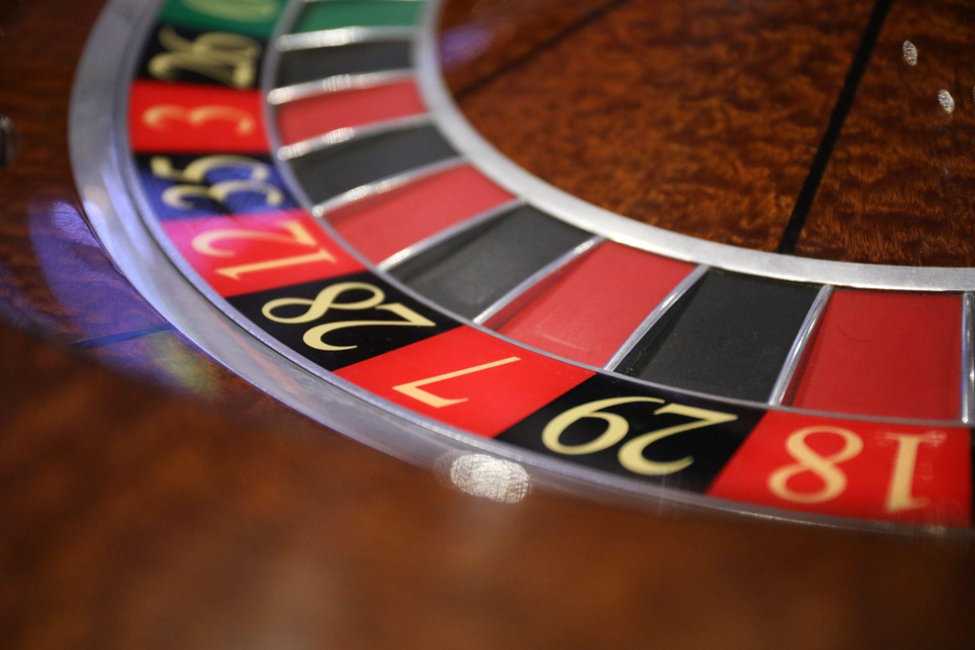What Do Monks, Angel Numbers, And Black And Red Colors Have To Do With Roulette?
There are three different origins from which the famous roulette game might have emerged. Some have undoubtedly mentioned that it is a purely aristocratic French game.
Author:Sonia RavenwoodReviewer:Celeste PearlSep 04, 202337.9K Shares506.1K Views

There are three different origins from which the famous roulette game might have emerged. Some have undoubtedly mentioned that it is a purely aristocratic French game. However, some tales suggest that the game, in simpler forms, bore a considerable resemblance to today’s modern roulette. No matter its age or origin, all roulette games share the same colors and numbers, or even most for a reason.
Despite the house edge, roulette is undoubtedly one of today’s most popular casinogames. Players in both land-based and online casinos enjoy it. Gambling enthusiasts can play online roulette for real moneyor cryptocurrencies. Moreover, online platforms offer a variety of roulette variants and employ advanced technologies to ensure a fair and random gaming experience for players.
From Greece to Rome and then to France, we’ll visit some of the earliest versions of roulette, learn who invented the game, and the symbolism behind its numbers and colors.
What Greek Soldiers and Chinese Monks Have in Common
In ancient Greece, a game similar to roulette was found among Greek soldiers. They created this game to distract themselves from the harsh realities of the battlefield. It is quite similar to the modern version of the game, but instead of a wheel, they used their shields as a surface. They would place their shields on the ground and put an arrow next to them, draw symbols inside the shields, and then spin them. The game’s objective was to bet on which symbol would land before the arrow.
Some say that the earliest form of the roulette wheel may have been the Wheel of Fortune or Rota Fortunae, a wheel-based game in Rome that used a wagon wheel with an arrow on top, divided into several sectors; soldiers would place bets on the wheel as it spun.
Despite the resemblance to Greek and Roman origins, some say that a Chinese board game may have inspired roulette. The game had 37 figurines, and players were supposed to arrange the figurines onto a magicsquare with a total of 666 numbers. It was first discovered by Dominican monks studying Chinese culture and lifestyles. They later brought the game to Europe with some modifications.
Unfortunately, the monks could not determine how the original board game was played, so they changed the layout. Instead of using a square, they opted for a circular shape and introduced a new zero slot. Some argue this theory is false because the initial roulette version had zero and double zero slots. However, today’s known roulette wheel numbers still add up tothe angel number 666.
Birth in Pascal’s Workshop
The first true invention of the roulette table was a purely coincidental event by aFrench scientist, Blaise Pascal, in 1655. Pascal was looking to defy psychics by inventing a machine that functions entirely without an external energy source, in other words, a perpetual motion machine. His experiment failed, but it resulted in today’s roulette.
Pascal’s roulette had a wheel of 36 pockets, divided equally into red and black slots. The wheel was spun, and a miniature ball would determine the winner among players who would select figures or the slots on which they predicted the ball would land.
François and Louis Blanc and the Single Zero Slot
The initial roulette, Pascal’s design, featured evenly divided slots lacking a single zero slot. François and Louis Blanc, two Frenchmen, decided to add the single zero slot, giving the house a slight advantage in the odds. Their wheel had 37 slots, 36 evenly divided into black and white, with the addition of a single zero green pocket, on which all players would lose if the ball landed.
Their design was custom-made for King Charles III of Monaco; Monaco had been struggling financially at the time, so King Charles decided to build a casino to generate money for his kingdom. The wheel quickly became a symbol ofMonaco’s fabulous wealth and upscale gambling culture.During the same period, a law banning gambling in France gave Monaco an advantage.
Roulette’s Double Zeros and Journey to American Shores
During the 19th century, a group of traveling European immigrants brought the wheel to US lands in Louisiana. Nevertheless, American society wasn’t pleased with European roulette, and Casino proprietors decided that a 5.26% house edge was too low. The double zero slots were introduced; it featured 36 even black and red slots with two additional green slots of zero and double zero. Nevertheless, players were displayed as theodds to beat the roulettewere fairly difficult; they chose different games.
Online Roulette
Nowadays, the roulette table is still a popular choice in casinos worldwide; even though the game has changed several times over the past decades, the basics remain the same, but the online version layout is slightly different to pick the slot, players view an evenly divided square, and the initial minimum betting fee varies between online casinos but still relatively lower than real-life ones. It’s no wonder roulette is popular; having gone under so many travels, naturally, its adventurous spirit calls for gamblers worldwide.

Sonia Ravenwood
Author
Sonia Ravenwood is an accomplished writer with a profound passion for exploring spirituality, magical practices, and the significance of numbers.
She has published numerous works exploring spiritual growth, magical practices, and the significance of numbers on reputable platforms.
Her insightful content reflects her expertise and dedication, making complex concepts accessible and engaging for readers.
Prior to focusing on writing, Sonia held various roles in content creation and marketing, honing her skills in communication and storytelling.

Celeste Pearl
Reviewer
Celeste Pearl is an accomplished writer and expert in numerology, astrology, and spirituality.
With a Bachelor of Arts in Journalism and over 6 years of writing experience, Celeste brings a wealth of expertise to her articles, making complex topics accessible and engaging for readers.
Her passion for metaphysical sciences is evident in her insightful content, where she explores the depths of these subjects with clarity and depth.
Beyond her professional pursuits, Celeste enjoys delving into spiritual practices and connecting with nature for inspiration.
Latest Articles
Popular Articles